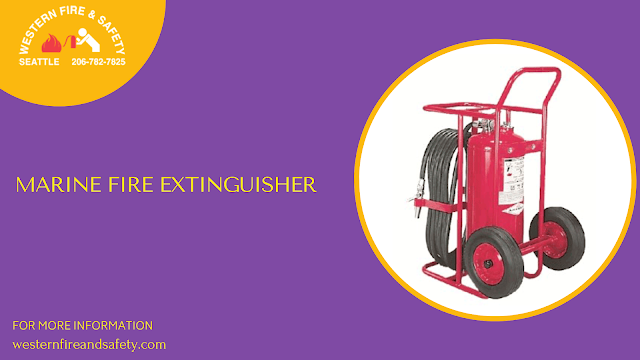When it comes to boating safety, having the proper fire
extinguishing equipment is crucial. A marine fire extinguisher is specifically
designed to address the unique challenges of fire hazards on boats and other
marine vessels. This guide explores the importance of marine fire
extinguishers, the types available, and key considerations for
selecting the right one to ensure your safety on the water.
The Importance of Marine Fire Extinguishers
Fires on boats can spread rapidly due to the confined space
and presence of flammable materials. A marine fire extinguisher is a vital
piece of safety equipment that can prevent a small fire from turning into a
catastrophic event. These extinguishers are specially formulated to tackle
fires common on boats, such as those involving flammable liquids, electrical
equipment, and cooking appliances.
Types of Marine Fire Extinguishers
Marine fire extinguishers are categorized based on the types
of fires they can extinguish:
·
Class A Fires: Involving ordinary combustibles
like wood, paper, and cloth. Water or foam extinguishers are typically used for
these fires.
·
Class B Fires: Involving flammable liquids like
gasoline, oil, and grease. CO2, dry chemical, or foam extinguishers are
effective for Class B fires.
·
Class C Fires: Involving electrical equipment.
CO2 or dry chemical extinguishers are suitable since they do not conduct
electricity.
·
Class D Fires: Involving combustible metals.
These are rare on boats but require a specialized dry powder extinguisher.
·
Class K Fires: Involving cooking oils and fats.
Wet chemical extinguishers are designed for these fires, commonly found in
galley areas.
Key Considerations for Choosing a Marine Fire Extinguisher
When selecting a marine fire extinguisher, consider the
following factors:
·
Size and Weight: Choose a size that is easy to
handle but sufficient to extinguish potential fires. Portable extinguishers are
ideal for small to medium-sized boats.
·
Type of Fire: Ensure the extinguisher is rated
for the types of fires most likely to occur on your vessel.
·
Mounting and Accessibility: Extinguishers should
be mounted in easily accessible locations, ensuring quick deployment in an
emergency.
·
Maintenance and Inspection: Regularly inspect
and maintain your extinguishers to ensure they are in working condition.
Replace or service them as needed according to manufacturer guidelines.
Conclusion
A marine fire extinguisher is an essential safety tool for
any boat owner. By understanding the different types of extinguishers and
considering key factors in their selection, you can enhance your preparedness
for fire emergencies on the water. Properly equipped and maintained, marine
fire extinguishers provide peace of mind and protection, ensuring a safer
boating experience. Make sure to choose the right extinguisher for your vessel
and always adhere to safety regulations to protect yourself and your passengers.
Call them at (206) 782-7825. https://www.westernfireandsafety.com/.

No comments:
Post a Comment